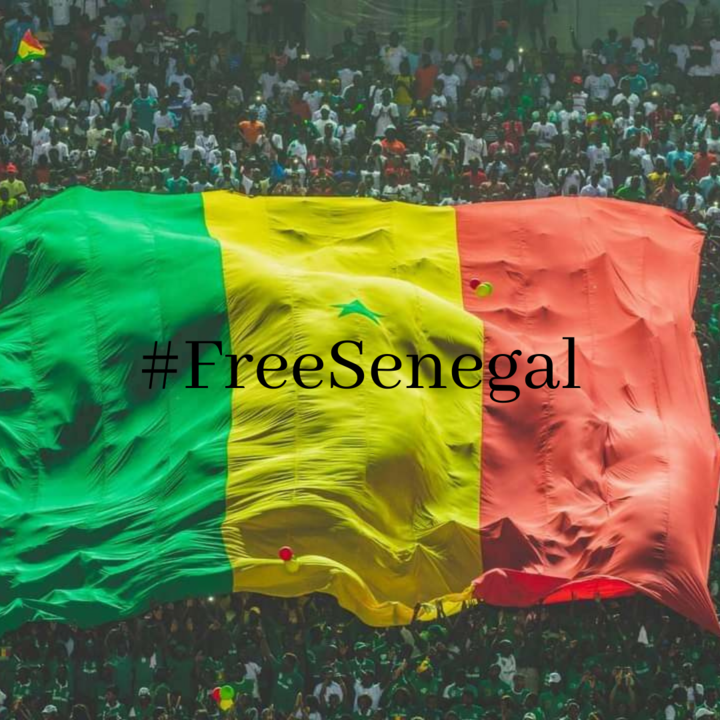Senegal Restricts Internet Access in the Wake of Protests across the Country

Senegal, a country in the West African Region, has blocked social media access after an opposition protest was disrupted by the police on Wednesday.
The protests were sparked when the leading opposition leader Ousmane Sonko was arrested as hundreds of supporters followed his motorcade, chanting and reportedly throwing stones at policemen. Reports say that police responded with teargas and grenades. The protest has since claimed at least 5 lives with the latest casualty being a teenager who died in a clash with security forces in the southern city of Diaobe. The country is well known for its stability and this protest is regarded as one of the biggest unrest the country has faced in years.
Ousmane Sonko was arrested for disturbing public order when he refused to change his route to court where he was going to deny charges of rape against him. Mr Sonko was accused of rape by an employee at a beauty salon but he says the allegations are fabricated and accused the president of trying to muzzle opposition through trumped-up allegations. He’s facing questioning after the Parliament voted to strip him of his immunity last week.
Sonko is the major challenger to the president’s re-election bid in 2024. The 46-year old tax inspector who came third with 15% of the vote in the 2019 presidential election, enjoys widespread support among Senegalese youth.
The government’s response to the crisis has been to restrict the nation’s access to social media and suspend TV stations from broadcasting the protests in order to quell it.
Netblocks, an organisation that monitors internet disruption in real-time all over the world confirmed that social media and messaging apps in Senegal were disrupted on Friday, 5th March 2021. According to their metrics, Facebook, YouTube, WhatsApp and Telegram CDN servers were restricted from leading cellular network operator Orange/Sonatel early morning on Friday. Affected services have subsequently been restored from 7:30 a.m. UTC.
According to NetBlocks, “data shows that CDN backend servers have been targeted, effectively limiting the sharing of photo and video content online. VPN services are effective at circumventing the restrictions at present.”
The country’s National Audiovisual Regulatory Council also suspended two television stations Thursday for 72 hours over their coverage of the protests, having warned broadcasters in a statement on March 3 against airing content that could “threaten national stability or social cohesion”.
This is the second internet restriction to happen this year in Africa after Uganda tinkered with internet access this year during its presidential elections. A lot of government officials in Africa do not consider the economic effects of internet shutdowns on the continent as they are more concerned with holding onto power. But actions like this have far-reaching negative economic implications for the citizens and indeed the country. As every shutdown comes with the loss of livelihood and affects the GDP of a country negatively.
People in Senegal have been making posts and trending #FreeSenegal on Twitter since the incident occurred, to draw worldwide attention to the cause and bring the happenings to the notice of the world.
Other factors fuelling the conflict include the lack of job prospects, government corruption and deepening poverty in Senegal.
The West African regional group ECOWAS has condemned the violence and called on “all parties to exercise restraint and remain calm” – adding that the authorities should “take the necessary measures to ease tensions and guarantee the freedom to demonstrate peacefully”
The Special Representative for the Secretary-General and Head of the United Nations Office for West Africa and the Sahel, Mohamed Ibn Chambas, said he “deplores the acts of violence” and called for restraint. He urged authorities to ensure protesters’ rights to demonstrate peacefully as well as their safety.
Eyes all over the world are on Senegal, expecting a peaceful resolution. As with most of the cases of internet shutdown in Africa, the underlying motivation has been to quell dissidents and weaken oppositions leaders so the government can rule unchallenged and without accountability. African leaders should understand that these methods are hardly ever effective and will only lead to increased radicalisation of opposition and civil society groups.